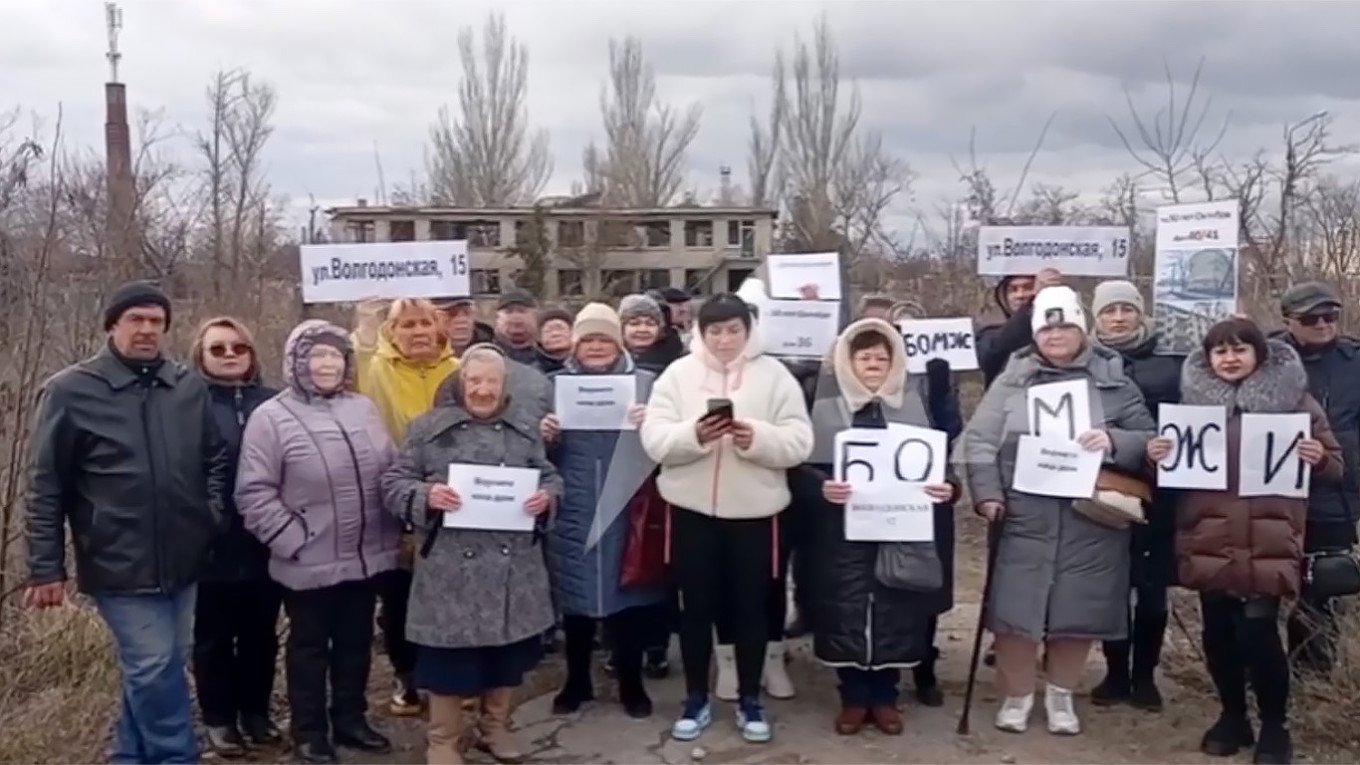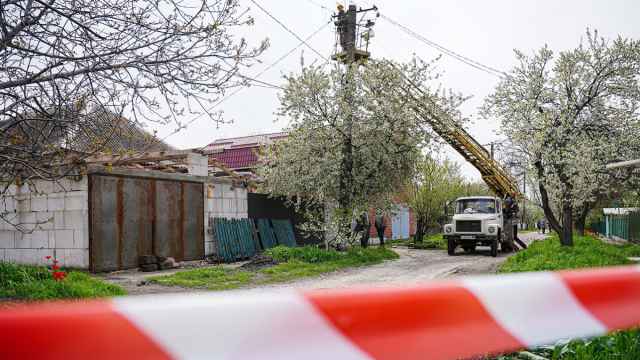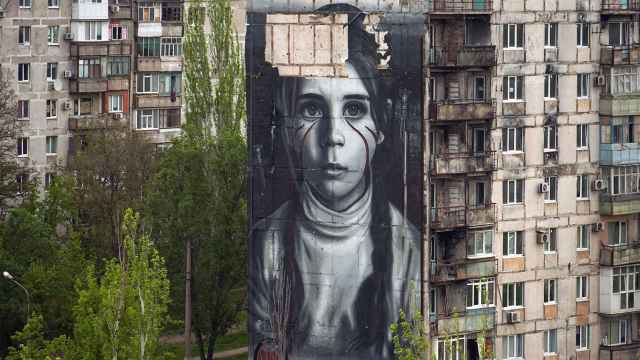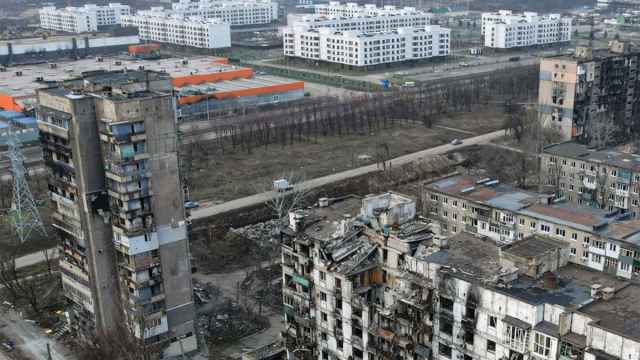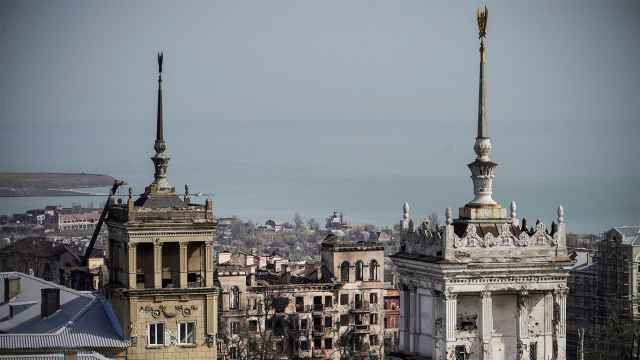A group of residents in the occupied Ukrainian city of Mariupol launched a campaign pleading with Russian President Vladimir Putin to provide them with new homes after theirs were destroyed during Moscow’s siege on the city.
Mariupol was mostly destroyed during the Russian army’s two-month assault in the spring of 2022. At least 8,000 residents of the city died amid the siege, according to Human Rights Watch.
Shortly after Moscow captured the southern port city, which had a pre-war population of around 400,000 people, Russian authorities rushed in with ambitious reconstruction plans, promising to build new apartment blocks for locals.
However, some residents have accused local Kremlin-backed authorities of offering them properties abandoned by their owners instead of building new replacement homes, according to videos published earlier this month and then again over the weekend.
“There are tens of thousands of us who found ourselves unwanted in our own city, although we waited for Russia and believed that it wouldn’t abandon us,” the survivors said in one of the videos addressed to Putin. “And now we’re completely disappointed.”
Local authorities have only replaced 70 of the more than 500 demolished apartment blocks, the surviving residents claimed, adding that construction of new buildings was halted in favor of mortgage housing.
“You say [the lost homes] should be returned, but our authorities seize them from those who can’t physically be here right now and want to give them out to others instead of building replacement housing,” a group of residents said.
“We’re not thieves, we don’t need someone else’s [homes]. Give us ours,” they demanded, referring to their refusal to accept abandoned properties instead of new homes.
A Message from The Moscow Times:
Dear readers,
We are facing unprecedented challenges. Russia's Prosecutor General's Office has designated The Moscow Times as an "undesirable" organization, criminalizing our work and putting our staff at risk of prosecution. This follows our earlier unjust labeling as a "foreign agent."
These actions are direct attempts to silence independent journalism in Russia. The authorities claim our work "discredits the decisions of the Russian leadership." We see things differently: we strive to provide accurate, unbiased reporting on Russia.
We, the journalists of The Moscow Times, refuse to be silenced. But to continue our work, we need your help.
Your support, no matter how small, makes a world of difference. If you can, please support us monthly starting from just $2. It's quick to set up, and every contribution makes a significant impact.
By supporting The Moscow Times, you're defending open, independent journalism in the face of repression. Thank you for standing with us.
Remind me later.


